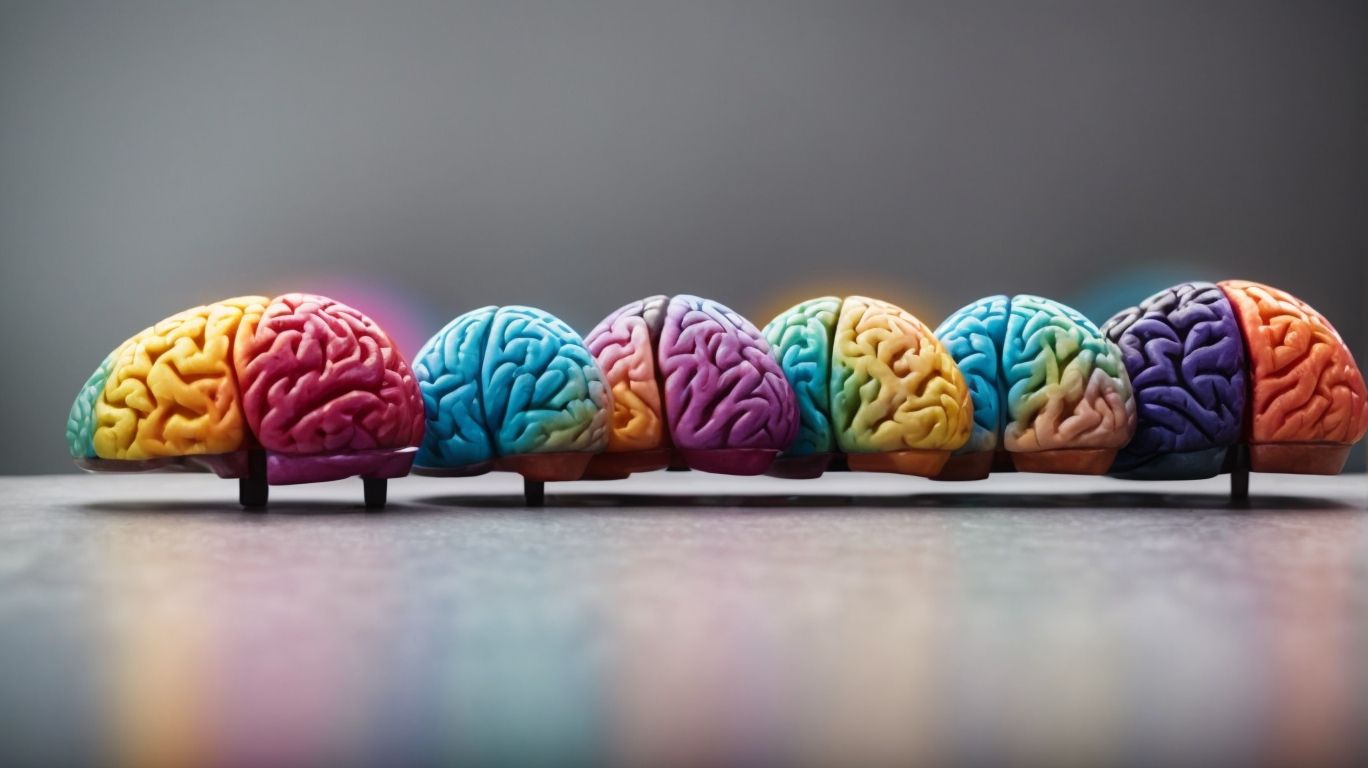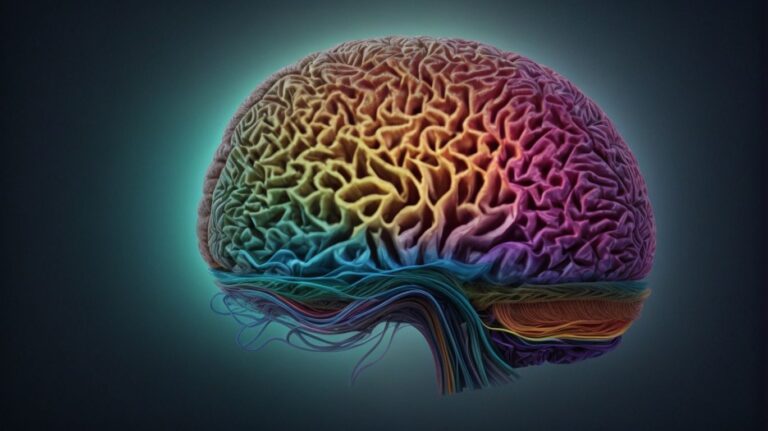Have you ever wondered what psychology really entails? From behaviorism to cognitive psychology, there are various paradigms that shape the way we understand the human mind.
In this article, we will delve into the major paradigms in psychology, exploring their theoretical frameworks, focus of study, research methods, and treatment approaches. We will also discuss how these paradigms are applied in real-life settings such as education, mental health, business, and sports. Join us on this journey through the fascinating world of psychology.
Contents
- 1 What Is Psychology?
- 2 What Are the Major Paradigms in Psychology?
- 3 How Do These Paradigms Differ?
- 4 What Are the Applications of These Paradigms in Real Life?
- 5 Frequently Asked Questions
- 5.1 1. What are the major paradigms in psychology?
- 5.2 2. How does behaviorism explain human behavior?
- 5.3 3. What is the main premise of psychoanalysis?
- 5.4 4. What do humanistic psychologists believe about human nature?
- 5.5 5. How does cognitive psychology approach the study of behavior?
- 5.6 6. How does evolutionary psychology explain human behavior?
What Is Psychology?
Psychology is the scientific study of the human mind and behavior, encompassing various theoretical perspectives and methodologies.
These perspectives include behavioral psychology, which focuses on observable behaviors and how they are learned and reinforced, cognitive psychology, which examines mental processes such as memory and decision-making,
biological psychology, which investigates the impact of biological factors on behavior, and the psychodynamic perspective, which delves into unconscious drives and conflicts.
Key theorists in the field include B.F. Skinner, known for his work on behaviorism, Jean Piaget for his contributions to cognitive development theory, and Sigmund Freud for his psychoanalytic approach to understanding the mind.
What Are the Major Paradigms in Psychology?
Psychology encompasses diverse paradigms that shape the understanding of human behavior and mental processes.
One of the major perspectives in psychology is behaviorism, which focuses on how external stimuli trigger observable behavior. Propounded by figures like B.F. Skinner and John B. Watson, behaviorism emphasizes the role of conditioning and reinforcement in shaping behavior.
On the other hand, psychoanalysis, developed by Sigmund Freud, delves into the unconscious mind and childhood experiences to explain behavior.
In contrast, humanistic psychology stresses personal growth, self-actualization, and free will, championed by theorists like Carl Rogers and Abraham Maslow.
Behaviorism
Behaviorism is a psychological approach that focuses on observable behaviors, emphasizing the role of environmental stimuli in shaping learned behaviors.
This perspective asserts that individuals’ behavior is largely influenced by their surroundings and the external factors that they are exposed to. Through the process of conditioning, which involves associating stimuli with specific responses, behavioral patterns can be established or altered. Reinforcement plays a crucial role in this framework, where the consequences of an action determine the likelihood of its recurrence. By understanding how environmental influences impact behavior, behaviorists seek to modify and shape behaviors to achieve desired outcomes.
Psychoanalysis
Psychoanalysis, developed by Sigmund Freud, delves into the unconscious mind, emphasizing the influence of early childhood experiences and interpersonal relationships on behavior.
Freudian concepts highlight the role of unconscious motives and desires in shaping one’s personality and actions. According to Freud, individuals may be unaware of these underlying forces that drive their behavior.
The concept of the unconscious suggests that there are aspects of the mind beyond conscious awareness that influence thoughts, emotions, and behaviors. Early experiences, particularly those in childhood, play a significant role in forming individual personalities and contributing to psychological development. For more information on the major paradigms in psychology, you can explore this reputable source.
Humanistic Psychology
Humanistic psychology focuses on individual potential and self-actualization, emphasizing positive aspects of human behavior and the importance of personal growth.
This psychological approach views humans as inherently good and striving towards reaching their full potential. Self-actualization is a key concept, representing the process of realizing and fulfilling one’s talents and capabilities. Humanistic psychologists like Carl Rogers and Abraham Maslow played pivotal roles in shaping this field, highlighting the significance of empathy, unconditional positive regard, and the hierarchy of needs. They emphasized the importance of creating environments conducive to growth and self-discovery.
Cognitive Psychology
Cognitive psychology explores mental processes such as memory, problem-solving, and decision-making, emphasizing information processing and the role of cognition in shaping human behavior.
Understanding information processors is integral to cognitive psychology, as it delves into how individuals encode, store, and retrieve information. Information processing models, including the stage model and the parallel distributed processing model, offer insights into how data is processed cognitively.
Cognitive theories highlight the significance of factors such as attention, perception, and language in shaping human cognition. Decision-making is a complex cognitive process influenced by past experiences, emotions, and cognitive biases, and cognitive psychology provides valuable frameworks to analyze and understand decision-making patterns.
Biological Psychology
Biological psychology investigates the biological underpinnings of behavior, exploring the influence of physiological processes, genetics, and the brain on human behavior.
Through studying the genetics of behavior, biological psychology seeks to unravel the intricate web of genetic predispositions that influence our actions and responses. This field delves deep into the complex interactions between genes and behavior, shedding light on how inherited traits can shape our personalities and cognitive functions.
By examining brain functions, researchers in this area uncover the neurological mechanisms behind various behaviors, including perception, emotions, and decision-making processes. The brain’s structure and activity play a crucial role in determining our actions and reactions to stimuli in our environment.
Evolutionary Psychology
Evolutionary psychology examines how evolutionary principles shape human behavior, emphasizing adaptive behaviors and the evolutionary purpose of psychological traits.
This field applies the comparative method to study the behavior of humans and other species, using insights from biology to understand how psychological traits have been shaped by natural selection over time. By exploring the ways in which certain behaviors helped our ancestors survive and reproduce, evolutionary psychology offers valuable insights into why humans exhibit specific patterns of behavior today.
Sociocultural Psychology
Sociocultural psychology explores how cultural factors influence human behavior, examining the role of social norms, environmental variables, and cross-cultural differences.
In sociocultural psychology, research emphasizes the profound impact of cultural norms on shaping individual behavior. Through cross-cultural studies, experts delve into how various cultures nurture unique behavioral patterns and beliefs. Social norms, established within societies, dictate acceptable actions and behaviors, leading individuals to conform and adapt their conduct accordingly.
Environmental variables play a significant role in sociocultural psychology, affecting how individuals behave within their specific cultural contexts. Understanding these influences is crucial in comprehending the complexities of human behavior across different societies and cultures.
Positive Psychology
Positive psychology focuses on promoting well-being, resilience, and positive emotions, emphasizing personal strengths and motivation.
One of the key figures in the field of positive psychology is Emily Roberts, whose work has significantly contributed to our understanding of how individuals can cultivate resilience and emotional well-being. Through her research and writings, she has highlighted the importance of building on personal strengths and fostering intrinsic motivation to enhance overall life satisfaction.
Positive psychology also delves into the concept of growth mindset, which is the belief that abilities and intelligence can be developed through dedication and hard work. This principle, popularized by Carol Dweck, reinforces the idea that individuals can overcome challenges and setbacks by embracing a positive and solution-oriented perspective.
How Do These Paradigms Differ?
These psychological paradigms differ in their theoretical frameworks, focus of study, research methods, and treatment approaches.
Behavioral psychology, for instance, emphasizes observable behaviors and environmental influences on behavior. Meanwhile, cognitive psychology focuses on internal mental processes like memory and problem-solving. Humanistic psychology, on the other hand, emphasizes personal growth and innate goodness. In contrast, psychoanalytic psychology delves into unconscious motivations and childhood experiences that shape personality. The research methodologies in these paradigms can range from controlled experiments in behavioral psychology to qualitative case studies in humanistic and psychoanalytic approaches.
Theoretical Framework
Theoretical frameworks in psychology shape the lens through which behaviors and mental processes are understood, varying across perspectives such as cognitive, psychodynamic, and biological approaches.
Within cognitive psychology, emphasis is placed on how individuals perceive, think, and solve problems, highlighting the role of cognitive processes in shaping behavior. This perspective often utilizes models like information processing theory to explain mental activities.
On the other hand, the psychodynamic approach delves into unconscious motives and conflicts that drive behavior, stemming from early life experiences and relationships. With roots in Freudian theory, psychodynamic theorists focus on the impact of unconscious desires and childhood experiences.
Focus of Study
Psychological paradigms diverge in their focus of study, ranging from observable behaviors in behaviorism to cognitive processes and unconscious motives in other approaches.
Behaviorism, for instance, emphasizes the importance of external stimuli shaping human actions, focusing on conditioning and reinforcement. On the other hand, cognitive psychology delves into mental processes like problem-solving, memory, and decision-making, painting a picture of how individuals perceive, think, and remember information. In contrast, psychoanalytic theories highlight the significance of unconscious desires and conflicts influencing behavior, tracing root causes of mental disorders back to childhood experiences and repressed memories.
Methods of Research
Psychological paradigms employ diverse research methods, including the comparative method, information processing models, and physiological studies to investigate behavior.
The comparative method involves comparing and contrasting different species to draw conclusions about behavior by identifying similarities and differences. On the other hand, information processing models analyze how individuals perceive, think, and solve problems, shedding light on cognitive processes. Furthermore, physiological studies explore the biological basis of behavior through brain scans, neurotransmitter analysis, and other techniques, providing valuable insights into the link between brain functions and behavior.
Treatment Approaches
Psychological paradigms offer distinct treatment approaches, from behavior modification techniques in behaviorism to psychotherapeutic tools such as psychodynamic therapy and humanistic counseling.
Behavior modification techniques utilized in behaviorism focus on shaping behaviors through reinforcement and conditioning, emphasizing observable actions rather than internal states.
On the other hand, psychodynamic therapy delves into unconscious processes, childhood experiences, and the importance of the therapeutic relationship in resolving mental health issues.
Humanistic counseling emphasizes personal growth, self-actualization, and the client’s capacity for making conscious choices to achieve emotional well-being.
These diverse approaches within psychological paradigms cater to varying needs and preferences of individuals seeking therapeutic interventions.
What Are the Applications of These Paradigms in Real Life?
Psychological paradigms find applications in various real-life settings, including education, mental health, business, marketing, sports, and performance domains.
For example, in the realm of education, understanding cognitive processes, motivation, and learning styles is crucial for educators to create effective teaching strategies tailored to individual student needs. In mental health, these paradigms inform therapy approaches, helping professionals address psychological disorders like anxiety and depression. In business, knowledge of behavioral economics and decision-making processes can enhance marketing strategies and customer engagement. In sports, mental training techniques based on psychological principles contribute significantly to athletes’ performance and overall well-being.
Education
Psychological principles inform educational practices, influencing learning strategies, teaching methods, and cognitive development in the field of education.
Educational psychology plays a crucial role in shaping how educators approach the design of learning environments and the implementation of instructional techniques. Understanding cognitive development theories helps teachers recognize the diverse needs of students and tailor their teaching approaches accordingly. By integrating insights from cognitive psychology, educators can create more effective lesson plans and assessments that cater to different learning styles and abilities. These theories provide a framework for educators to grasp how students process information, retain knowledge, and develop critical thinking skills.
Mental Health
Psychological paradigms contribute to mental health practices through psychotherapy, counseling, and the treatment of various mental disorders.
These paradigms serve as frameworks that guide mental health professionals in understanding the root causes and manifestations of mental disorders.
By employing various therapeutic approaches such as cognitive-behavioral therapy, psychodynamic therapy, and humanistic therapy, therapists aim to help individuals develop coping mechanisms and emotional regulation skills.
Counseling approaches like person-centered therapy and solution-focused therapy provide individuals with a supportive environment to explore their thoughts and emotions.
Effective management of mental disorders involves a combination of medication, psychotherapy, and lifestyle changes to address the complex interplay of biological, psychological, and social factors.
Business and Marketing
Psychological insights are applied in business and marketing strategies to understand consumer behavior, drive decision-making, and optimize advertising practices.
Consumer behavior analysis delves into the intricate dynamics shaping how individuals make choices within markets. By recognizing the underlying psychological mechanisms, businesses can tailor their strategies to resonate with the emotions, needs, and desires of their target audience. Decision-making processes, influenced by factors like cognitive biases and emotional triggers, play a pivotal role in shaping purchasing decisions. Understanding these aspects enables companies to design more effective marketing campaigns that appeal to the subconscious drivers of consumer behavior.
Sports and Performance
Psychological techniques enhance sports performance by addressing athlete motivation, goal setting, and mental strategies through the field of sports psychology.
Athlete motivation plays a crucial role in determining the level of commitment and effort athletes put into their training and competition. Understanding the psychological aspects of motivation helps coaches and sports psychologists develop tailored strategies to inspire and drive athletes towards their goals. Utilizing effective goal-setting techniques further enhances performance by providing athletes with clear objectives to strive towards, boosting focus and perseverance. Mental preparation involves training the mind to handle pressure, build resilience, and maintain optimal performance during high-stress situations on the field or track.
Frequently Asked Questions
1. What are the major paradigms in psychology?
The major paradigms in psychology are behaviorism, psychoanalysis, humanistic psychology, cognitive psychology, evolutionary psychology, and biopsychology.
2. How does behaviorism explain human behavior?
Behaviorism focuses on observable behavior and the effects of environmental stimuli on behavior. It suggests that human behavior is shaped by reinforcement and punishment.
3. What is the main premise of psychoanalysis?
Psychoanalysis emphasizes the role of the unconscious mind and early childhood experiences in shaping behavior. It believes that unresolved conflicts and repressed feelings can lead to psychological issues.
4. What do humanistic psychologists believe about human nature?
Humanistic psychologists view humans as inherently good and believe in the importance of self-actualization and personal growth. They emphasize the role of free will and personal choice in shaping behavior.
5. How does cognitive psychology approach the study of behavior?
Cognitive psychology focuses on mental processes such as thinking, problem-solving, and memory. It suggests that behavior is influenced by internal mental processes and how individuals perceive and interpret the world around them.
6. How does evolutionary psychology explain human behavior?
Evolutionary psychology proposes that human behavior is shaped by natural selection and adaptation. It suggests that certain behaviors may have evolved to increase an individual’s chances of survival and reproduction.



